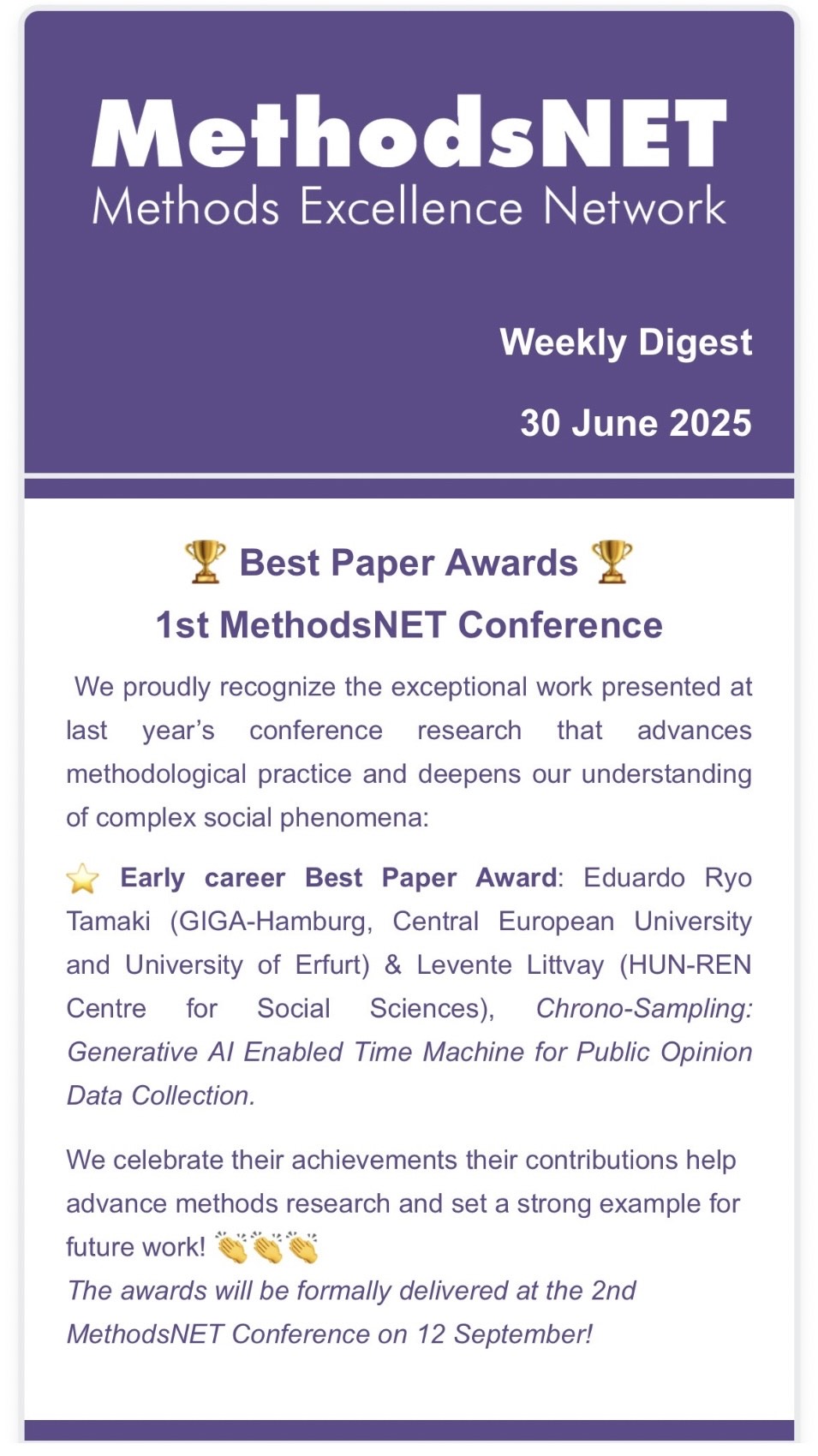Some really good news: our paper “Chrono-Sampling: Generative AI Enabled Time Machine for Public Opinion Data Collection” just won the Best Early Career Paper Award at the 2024 MethodsNET Conference.
MethodsNET is one of the biggest and most exciting methods conferences in the social sciences—so this means a lot.
I co-wrote the paper with my good friend and collaborator Levente Littvay. The idea was born, fittingly, after the 2024 edition of the MethodsNET 3SRM Summer School in Nijmegen. I had just taken a course on AI for Political Analysis with Ethan Busby (BYU). At the end of the course, we had to pitch a research idea. I remember standing in the rain, waiting for the bus, when I turned to Levi and said: “So… Listen, what if we do this…”
We spent the next few days brainstorming. A few weeks later, when I was back in Hamburg, we locked in and started building the first version of what would become Chrono-sampling. Fast-forward to the end of the year, we presented our paper at the MethodsNET conference :)
What’s Chrono-sampling?
In short: it’s a generative AI framework that simulates public opinion from the past—not just the surface-level data, but the actual context-dependent relationships between attitudes and conditions. The key idea is to move beyond static distributions and capture how things like economic perceptions, ideology, and vote choice shift across time—especially during recessions, political transitions, and crises.
We combine:
- Time-gating, to constrain the model to a specific year
- Clio Personas, rich biographical prompts built from real profiles, conditioning the LLM to “think” like a historically grounded individual
We tested it on U.S. presidential eras—Reagan, Bush, Obama—and found that it replicates historical public opinion patterns with surprising accuracy. It doesn’t just preserve correlations; it models how and when those correlations change.
This was one of the most fun and ambitious projects I’ve worked on, and I’m incredibly proud of what we built. You can check it here.
Huge thanks to Levi, Ethan, and the MethodsNET community.
More to come.
